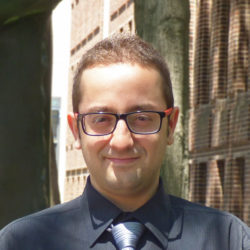Ozan Kuru, an APPC postdoctoral fellow, is part of a team that has been awarded a misinformation and social science research grant from WhatsApp, the Facebook-owned messaging platform which has 1.5 billion users.

Facebook and Twitter have conducted much-publicized efforts to control the spread of misinformation and disinformation on their social media platforms. Less attention has been paid to the global spread of misinformation on messaging apps. WhatsApp has struggled, for example, to control disinformation in India, where it was recently linked to a series of murders of purported child kidnappers. Earlier this year in India, WhatsApp was used by political parties, religious activists, and others to reach nearly 50 million voters before an election in the Karnataka state.
Kuru is co-principal investigator along with Scott Campbell of the University of Michigan on the project “Beyond the Forward: The Social Shaping of (Mis)information through WhatsApp.” The team will use survey research to examine news sharing and misinformation in the United States, Turkey, and Singapore. Kuru said the group will investigate whether and how people share misinformation, refer to fact-checking sources, and correct others spreading misinformation on WhatsApp.
Kuru said the end-to-end encryption in WhatsApp makes it a valuable and secure way to send messages in countries where privacy and government surveillance is a concern. But that same technology can be used to fuel the spread of misinformation without the checks and balances seen on social platforms.
His research project was one of 20 to receive awards of up to $50,000 from WhatsApp. His team includes Joseph Bayer at Ohio State University, Lemi Baruh of Koç University, and Richard Ling of Nanyang Technological University.

